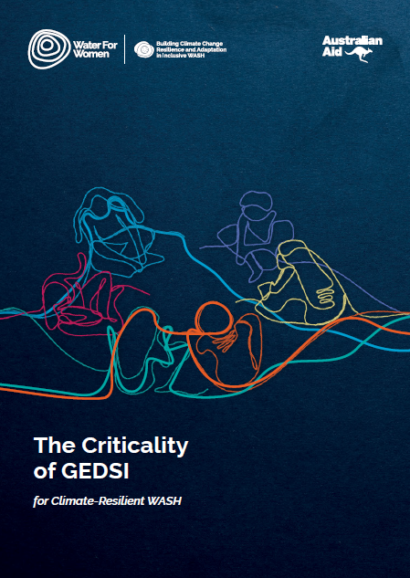
Water for Women (WfW) is unique in its role as an implementation and research fund that contributes to local, regional and global understanding of best practice in climate-resilient inclusive development. During the 2023–24 extension period, drawing on learnings from the implementation of climate-resilient and inclusive water, sanitation and hygiene (WASH) projects and research across the Asia-Pacific region, WfW partners sought to explore a fundamental learning question: What does climate-resilient inclusive WASH development look like?
This learning brief shares key findings and insights from the third learning group about the criticality of gender equality, disability and social inclusion (GEDSI) for climate-resilient inclusive WASH.
- The most marginalised in communities are at the frontline of climate change hazards, uncertainty and impacts – they must be part of decision-making for context-appropriate and sustainable climate resilience solutions.
- Transformative GEDSI considers the inherent linkages between climate change, WASH, resilience, equity and inclusion – particularly for marginalised populations who experience intersectional disadvantages.
- Social, habitat, institutional, financial and technical barriers to participation and access are compounded by climate change impacts on WASH services. However, it is possible to shift these barriers to become enablers.
- Inclusive and accessible WASH approaches increase coping mechanisms and adaptive capacities, providing a multiplier effect that benefits everybody and supports positive outcomes beyond WASH.
- Climate risk-informed and inclusive approaches built into WASH services and systems are key enablers for effective community and climate resilience outcomes.


